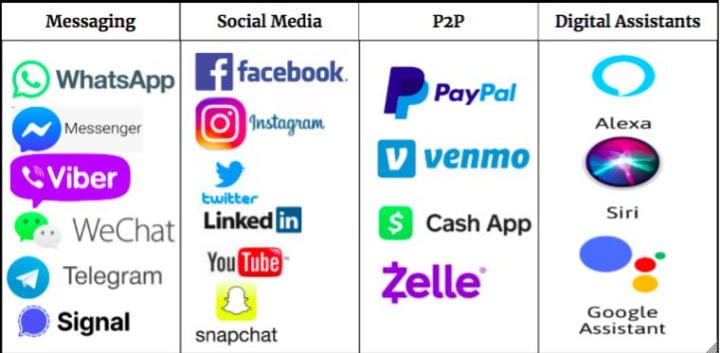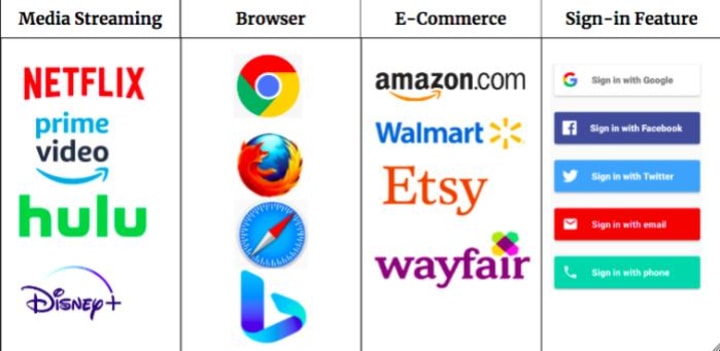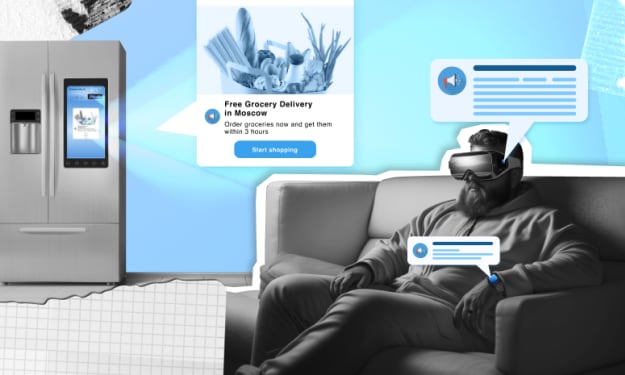Is it Possible to Track your Own Private Data?
Data Privacy and Data Sharing

With the emergence of smartphones, we spend or use social media platforms, streaming apps, or digital assistants more than we realize. If you don't agree think about the following questions:
When was the last time you did not take out your phone in an elevator instead of having a conversation with other people you may or may not know? When was the last time you picked a movie on a streaming platform like Netflix without using their recommendation? Think about how often do you wish your friend a happy birthday between a call or a message/social media post? How often do you use Digital assistants to remind you about an appointment?
A quote from Barack Obama:
If we're going to be connected, then we need to be protected.
Data protection cannot be the sole responsibility of Social Media platforms, we as consumers have equal responsibility in educating ourselves on social media platforms about data privacy and data sharing options that are exposed to us as consumers.
Whatsapp announced changes to privacy policy this month which met with a quick backlash prompting executives like Elon Musk, Jack Dorsey to weigh in as well. The actual notification from Whatsapp had policy changes related to services used by Businesses and almost very little was changing for individual user accounts, but misinformation spread prompted Whatsapp to extend the deadline from Feb 2021 to May 2021 to give more time for users to get educated on the changes in terms. Most noticeably Elon Musk's tweet created quite a storm that sent a completely unrelated company that traded as a penny stock at 0.70$ to almost 40$.
Privacy Please, is there such a thing.? in the current digital world, where we are so connected to the internet through messaging apps, social media apps, peer-to-peer payment apps and not to forget digital or virtual assistants at home. Irrespective of all the disclaimers and notification alerts that we receive from these apps, our private data does get out in most cases hopefully for the right reasons to make our lives easy or selling us services or products that we might be interested in.
As I have started reading more about the privacy alerts, it prompted me to check and do some analysis for the following questions:
What are the different categories of social media apps that I might use in my day-to-day life?


What data do these apps collect in regards to my private data?
Messaging apps - Whatsapp and Messenger belong to the same parent company Facebook and takes the bulk of the market share in terms of a number of customers. Messaging apps usually collect information about the device, contacts, email addresses along with other product interaction information. Signal is the only app in this category that doesn't collect any other information except your phone number which is used for identity verification.
Social Media Apps - Tracks what we like, what we follow, what keywords we search including what products we like or interested in. Social media apps do share information with other social media platforms, for example, a product search in google quickly finds its way into other social media platforms that you use, with ads targeting the product you have searched for.
Peer-to-Peer Payment Apps - Payment information, who you are paying, what you are purchasing is kind of considered very private but with the emergence of Peer-to-Peer payment apps like Venmo, Paypal, Facebook Messenger, Apple Pay, Google Pay, and Zelle, we have to be very careful and educate ourselves on the consumer protection.
Digital or Virtual Assistants - The devices that started initially as digital assistant quickly made it's way integrating with every other service or utility that we use. Digital Assistants such as Alexa pretty much integrates with your Security, Shopping, Entertainment and enabling smart home features.
Other categories like Steaming platforms, Browsers, and most importantly very commonly used feature "Sign-in with" collect and share data as well. Most of the e-commerce websites now have the feature asking you to "Sign-in with Facebook" or "Sign-in with Google" or "Sign-in with Apple", this allows third-party apps as well as companies like Facebook or Google to share information based on your data privacy preferences.
I am not suggesting to delete or discontinue using them, but educating yourselves on these different categories and the platforms we use will really help in protecting your data. Despite taking sensible steps, we need to remember that the internet is wide open, and there really is no such thing as privacy.
How would I track what private data of myself is publicly available on the internet?
Most of us have probably searched our name or your connections at some point. Though search engines don't pick up everything, researching about yourself on the internet can be a valuable tool to see what information is already out there and will help you in tracking and protecting your data.
People-finder sites are a big concern as they aggregate data from different sources and make the information public. They are usually classified into two categories: Primary and Secondary. Primary sites gather information from government entities and utilities. Secondary sites gather information not only from Primary sources but from social networks. Some of these include Spokeo, Wink, LookUp, PeekYou, and 123People. The good news is that many of the data collectors provide you a way to opt-out and have your data removed from their sites but unfortunately, some of this data might re-aggregate on the sites you had expunged, or pop up on other similar sites.
Following are some of the way you can track your private data:
Google provided service called "Me on the Web", allows you to type in search parameters to look for your personal information and to add them to Google Alerts, which will e-mail you when new instances of these search strings appear on the Web.
SocialMention is another such website, which tracks information about you or anyone else appearing on various social media sites.
There are a lot of companies in the industry that provides consumer credit protection and tracking like Experian, TransUnion, Equifax, and CreditKarma. Enterprises Data protection and tracking are provided by companies like Veritas, Forcepoint, Veeam but when it comes to individual customer data protection or tracking, unfortunately, the industry is still behind in providing a comprehensive solution for individual data protection.
Until then the responsibility falls on us to find the right balance on what information can be shared online and educating ourselves on social media platforms regarding data privacy and data sharing.
About the Creator
Hari Prasad Bairaju
Technical Architect, Writer, Philanthropist.
Professionally, I’m a Hands-On Cloud Data Architect, Solution Architect and Engineering manager, with Certifications in AWS, GCP, Snowflake and Confluent Kafka.






Comments
There are no comments for this story
Be the first to respond and start the conversation.